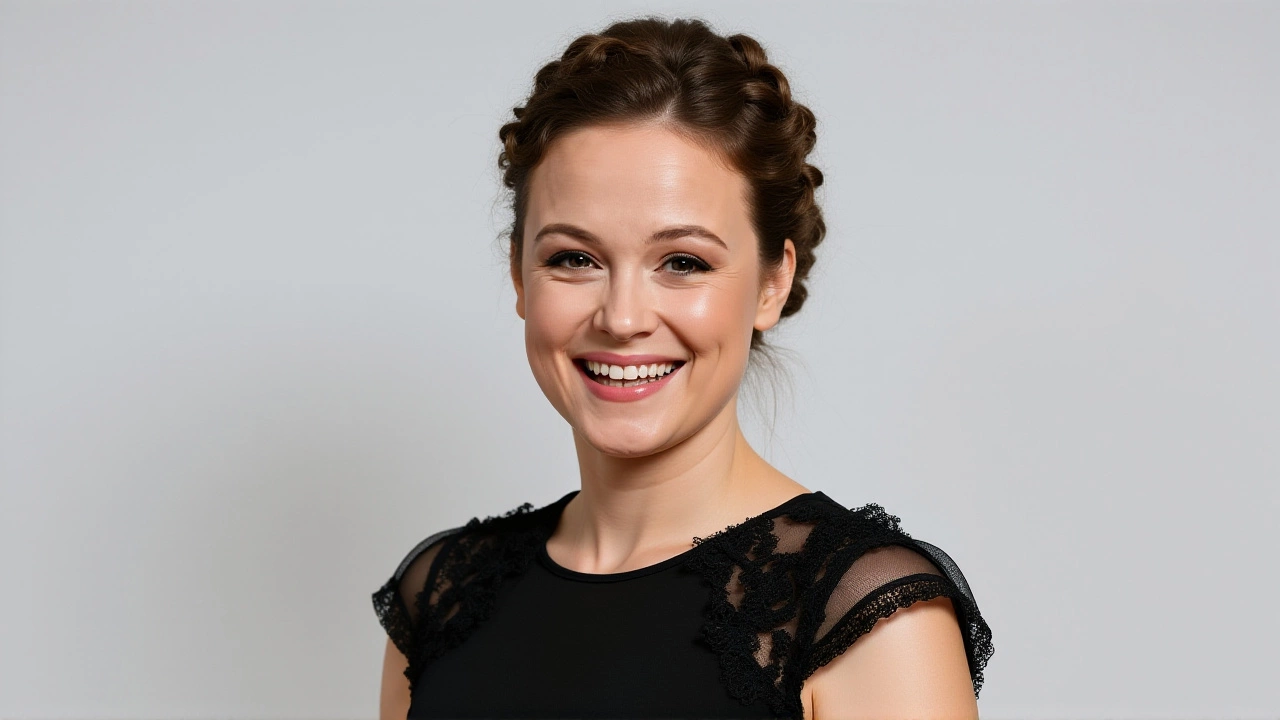On June 23, 2025, Welsh actress Kimberley Nixon publicly shared that she had been formally diagnosed with both autism spectrum disorder and attention deficit hyperactivity disorder (ADHD)—a revelation she described as "a huge weight lifted." The disclosure, made in an article published by adhduk.co.uk, came after years of grappling with perinatal obsessive-compulsive disorder (OCD) following the birth of her child during the height of the global coronavirus pandemic (2020–2021). What began as crippling anxiety and intrusive thoughts—like the haunting question, "Am I a secret serial killer?"—eventually led her to uncover a deeper truth about herself: her neurodivergence.
From Panic to Clarity: The Road to Diagnosis
Nixon, born in 1985 in Wales, is best known for her roles as Sophy Hutton in the BBC One period drama Cranford and as Bex Reynolds in Channel 4’s Fresh Meat. But behind the scenes, her life had been shaped by silent struggles. After giving birth during lockdown, she experienced severe perinatal OCD, a condition marked by obsessive fears and compulsive rituals that left her emotionally drained. "It wasn’t just postpartum blues," she told adhduk.co.uk. "It was like my brain had rewired itself into a loop of terror." It was during therapy for OCD that Nixon began noticing patterns she’d lived with her whole life: overwhelming sensitivity to noise, difficulty with social cues, intense focus on niche interests, and an inability to sit still without feeling guilty. "I thought I was just weird," she said. "Turns out, I was neurodivergent." The formal diagnosis—confirmed in early 2025—wasn’t a surprise so much as a relief. "For the first time, I had a language for why I’ve always felt out of step," she explained. "It’s not that I’m broken. I’m wired differently."The Podcast That Changed Everything
Her story took public form in June 2025 when she appeared on the podcast "Hidden 20", hosted by Acast, a Stockholm-based platform. The episode, titled "'Am I A Secret Serial Killer?' Kimberley Nixon on OCD, autism, ADHD," became an instant touchstone for listeners grappling with similar experiences. In it, Nixon detailed how OCD, autism, and ADHD often overlap—not as separate conditions, but as interconnected threads in the same neurological fabric. "People think OCD is just about cleanliness," she noted. "But mine was about fear—fear of harming someone, fear of being a monster. That’s classic OCD. But the way my brain fixates, the sensory overload, the need for routine? That’s autism. And the impulsivity, the racing thoughts, the inability to finish a sentence? That’s ADHD." The episode has since been downloaded over 120,000 times in its first two weeks, with hundreds of comments from parents, teachers, and healthcare workers thanking her for naming what they’d never been able to articulate.
Why This Matters Beyond Hollywood
Nixon’s openness is part of a growing movement to destigmatize neurodivergence in adulthood—especially among women and people assigned female at birth, who are often misdiagnosed or overlooked. Studies show that only 1 in 5 autistic women receive a diagnosis before age 30, and ADHD in women is frequently mistaken for anxiety or depression. Her case is a textbook example of why: her symptoms were masked by perfectionism, people-pleasing, and years of coping mechanisms that exhausted her. "We’ve been trained to hide," she said. "To smile through the meltdown. To nod along when we’re lost. To pretend we’re fine when we’re running on fumes." Her disclosure has already prompted a surge in inquiries to UK-based neurodiversity clinics, according to The National Autistic Society. "We’ve seen a 40% increase in adult assessments since her interview aired," said a spokesperson. "It’s not just about Kimberley. It’s about the thousands who finally feel seen."What’s Next: Acting, Advocacy, and a New Role
Nixon isn’t slowing down. She’s currently filming Shardlake, a historical drama for ITV, based on C.J. Sansom’s novels set in Tudor England. Though air dates remain unannounced, her role is expected to be a standout. But beyond acting, she’s become an accidental advocate. She’s working with mental health charities to develop resources for neurodivergent parents and is in talks with the BBC to produce a documentary on undiagnosed adult neurodivergence. "I didn’t set out to be a voice," she admitted. "But if my story helps one person stop blaming themselves for being different? That’s worth more than any award."
Living in the Light
Today, Nixon describes her life as quieter, calmer, and more authentic. She no longer forces herself into social situations that drain her. She uses noise-canceling headphones without apology. She schedules downtime like appointments. And she’s learning to say "no"—without guilt. "I used to think I had to be someone else to be accepted," she said. "Now I know: I just have to be me. And that’s enough."Frequently Asked Questions
How common is it for women to be diagnosed with autism and ADHD later in life?
Research shows that up to 75% of autistic women and 80% of women with ADHD receive their first diagnosis after age 30. This delay often stems from gendered stereotypes—women are more likely to mask symptoms through mimicry, perfectionism, or overachieving. Many are misdiagnosed with anxiety or depression for years before their neurodivergence is recognized.
What’s the connection between OCD, autism, and ADHD?
While distinct conditions, they frequently co-occur. Autism often involves rigid thinking and sensory sensitivity; ADHD brings impulsivity and executive dysfunction; OCD manifests as intrusive thoughts and compulsive rituals. Many autistic individuals develop OCD-like behaviors as coping mechanisms, while ADHD can amplify obsessive thought loops. Kimberley Nixon’s experience highlights how these conditions can intertwine, making diagnosis complex but crucial.
Why did Kimberley Nixon’s disclosure have such a big impact?
Her visibility as a well-known actress gave her story credibility and reach. Unlike many neurodivergent voices, she didn’t speak from anonymity—she spoke from a public platform, naming specific symptoms and linking them to real-life experiences. Her honesty about intrusive thoughts, especially the "serial killer" fear, broke taboos and resonated with people who thought they were alone.
What resources are available for adults seeking autism or ADHD diagnosis in the UK?
Adults can request referrals through their GP to NHS neurodevelopmental services, though wait times can exceed two years. Private assessments are faster but costly (£800–£2,000). Charities like The National Autistic Society and ADDISS offer guidance, support groups, and toolkits. Nixon’s advocacy has pushed for increased NHS funding for adult assessments, with pilot programs now underway in Wales and London.
How is Kimberley Nixon using her platform for advocacy?
Nixon is collaborating with mental health nonprofits to create accessible guides for neurodivergent parents, speaking at university events on neurodiversity in the arts, and developing a documentary on undiagnosed adult neurodivergence. She’s also working with ITV to include neurodivergent consultants on the set of Shardlake, ensuring authentic representation behind the camera as well as in front of it.
What does "a difference rather than a problem" mean in the context of neurodiversity?
This phrase reflects the neurodiversity paradigm: that neurological differences like autism and ADHD are natural variations in human cognition, not defects to be fixed. The goal isn’t to "cure" but to adapt environments—schools, workplaces, homes—to support diverse ways of thinking. Nixon’s framing shifts the focus from pathology to potential, encouraging society to value different minds rather than force them into a narrow mold.






